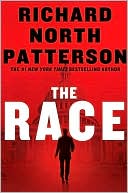Miyoko Olszewski: World Champion
On Thursday evening, Miyoko “The Hawaiian Mongoose” Olszewski defeated Elena Reid to win the WIBA flyweight title.
Miyoko is a longtime friend and I was there, screaming and cheering in the audience. Those of us who had come to root for Miyoko wore leis, nodding to Miyoko’s Hawaiian origins. What a fight it was, all 10 rounds! Miyoko came out strong in the first few rounds, fighting in her trademark crisp, thoughtful style. For a few rounds in the middle, Miyoko seemed to conserve herself, and a few voices screamed, “Jab, Miyoko! Double jab!”
I laughed to myself when I heard the calls. I’ve sparred with Miyoko, and her jab is like a solid brick wall. There’s simply no getting through it. Miyoko’s jab is so tough and skilled that there’s not even the possibility of a few atoms making use of quantum tunneling to get through it.
Then in the 8th round, Miyoko brought it. She came forward with powerful, relentless punches and dominated the fight. By the 9th round, Reid’s face was swollen to twice its original size. It was a clear, decisive victory for Miyoko, and her fans yelled themselves voiceless.
Miyoko deserved this win: she has worked long, hard, and consistently to achieve World Champion status. She exemplifies values that I revere and that I try to teach my children: hard work, sacrifice, self-discipline. These are not glamorous values today. Our culture has been overly psycho-therapized into mediocrity; we think any old half-hearted effort is just swell. We teach our kids that losing soccer games is just as good as winning them. And while good sportsmanship is imperative, and everyone needs to learn to deal gracefully with defeat and failure–we’ve done our children a disserve. Losing is not the same as winning. Mediocrity is not okay.
Winning matters. Being the best matters. If being the best isn’t an option for genetic or other reasons, then hard work, self-discipline, and sacrifice still matter; those qualities differentiate between mediocrity and excellence. The 4000 failures that are required along the path to success matter. It’s a question of persistent integrity, another value that is not considered important in today’s moral relativism.
But people who persist in these terribly old fashioned values are world champions. Some of them win a belt and acclaim, as Miyoko did. Some just win a quiet internal sense of self-esteem.








